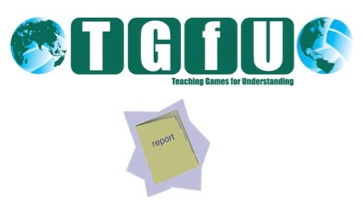Teaching Games for Understanding in the coaches eyes
Harvey, S., Cushion, C. J., and Massa-Gonzalez, A. N. (2010). Learning a new method: Teaching Games for Understanding in the coaches eyes, Physical Education and Sport Pedagogy, 15(4), pp. 361-382The purpose of this study by Harvey and colleagues (2010) was to integrate the TGfU model into the coaching practices of two American high school soccer coaches. Historically, sport coaches have relied on ‘tried and tested’ coaching methods, resulting in practices that reflect large amounts of physiological training and technical practice (Williams, Yates and Ford, 2007). The authors of this article argue here, that TGfU has the potential to challenge traditional coaching methods.
This article draws on the research conducted in physical education, and although the authors acknowledge that TGfU has impacted learning and teaching in these contexts, coaches require different levels of knowledge in relation to a difference in roles. Consequently, it is important to study the practices of coaches to appreciate how TGfU can be adopted into their current working practices. The findings from this study indicate that coaches’ personal histories, or habitus, are influential factors in determining whether new learning methods are incorporated into existing practices. For Brad, the more experienced varsity coach, found it more difficult than Jeff, a younger more inexperienced first year team coach, to implement many of the TGfU benchmarks. Brad’s prior coaching experiences had led to their coaching beliefs becoming much more deep-rooted, and thus difficult to change. Jeff on the other hand was in his first year of coaching and more open to new ideas and ways of doing things. Although neither coach fully adopted TGfU into their practices, the results showed that elements had been adopted. As the authors make clear though, TGfU is a challenging model to adopt given the pedagogical expertise and knowledge required implementing it. The authors conclude by recommending that formal coach education courses (e.g. National Governing Body awards) embrace athlete-centered approaches, such as TGfU, to allow coaches to better understand the theories of learning that underpin what they do. While this study has considered the coaches perspectives of using TGfU in practice, future research would be welcomed that attempts to capture the perspective of the learner, who has been coached using the TGfU model. This would offer further evidence to support the use of this model in coaching practice. References
Williams, A.M., I. Yates, and P. Ford. (2007). Structuring practice for effective learning: Are we failing our current generation of aspiring young players? Insight: The Football Association Coaches Association Coaches Magazine, Spring, pp. 50–56.
Review Completed by Edward Cope, PhD Student, University of Bedfordshire, UK |



